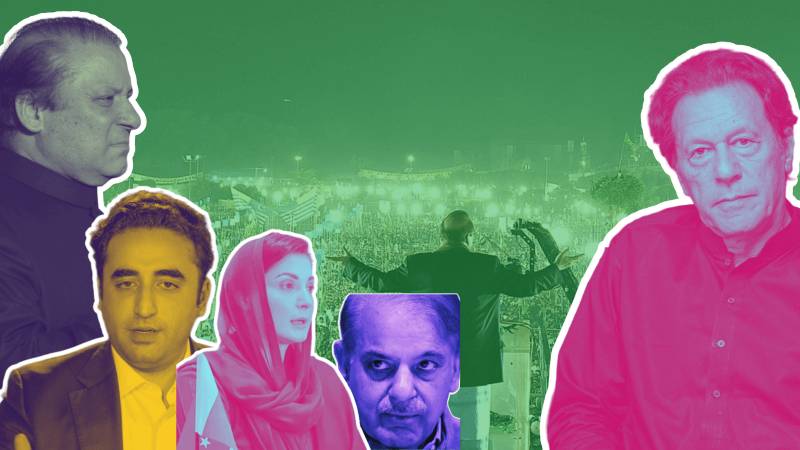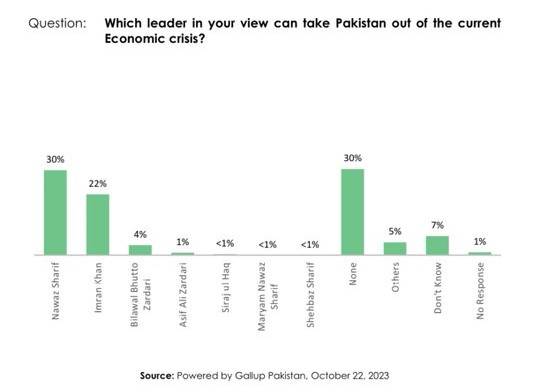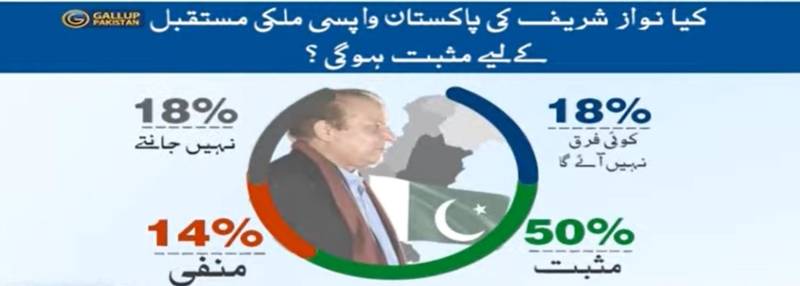
A new poll has placed deposed prime minister and Pakistan Muslim League-Nawaz (PML-N) supremo Nawaz Sharif ahead of former premier and Pakistan Tehreek-e-Insaf (PTI) Chairman Imran Khan as a leader who, in public opinion, can take Pakistan out of its current economic crisis.
The poll was conducted by Gallup Pakistan on October 22, 2023, and was conducted in the wake of Nawaz's return over the weekend.
The poll asked the question: "Which leader, in your view, can take Pakistan out of the current economic crisis?"
In response to the open-ended question, 30% of responders named Nawaz Sharif.
It was followed by Imran Khan, who was recommended by 22% of respondents.
Around 30% of respondents said none of the available leaders were capable.
Amongst other available options, four percent named Pakistan Peoples Party (PPP) Chairman Bilawal Bhutto Zardari, while one percent named former president and PPP Co-Chairman Asif Ali Zardari.
Leaders who received less than a percentage of votes were former prime minister Shehbaz Sharif, PML-N Chief Organiser Maryam Nawaz and Jamaat-e-Islami (JI) Ameer Sirajul Haq.
Around five percent of respondents named other leaders.
Around seven percent replied with "don't know".

In response to a question about whether Nawaz Sharif's return was positive for the nation, around 50% of respondents said it was positive.
Around 14% said it was negative. Around 18% of respondents said it made no difference, while 18% said they did not know.

When asked if respondents knew about Nawaz Sharif's return to Pakistan, around 75% said they knew of his return,, while 24% said they did not. As many as one percent said they did not know.
However, 65% of respondents said they did not hear his speech at the Greater Iqbal Park in Lahore on Saturday evening. Only 34% said they heard the speech.
Of those who heard the speech, 80% said that they liked the speech. A smattering, around 12% said they did not like the speech.
A further seven percent of respondents said they neither liked nor disliked the speech. The remaining abstained from sharing their view.

